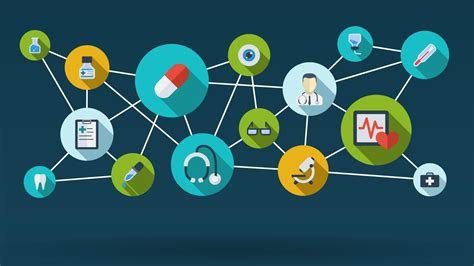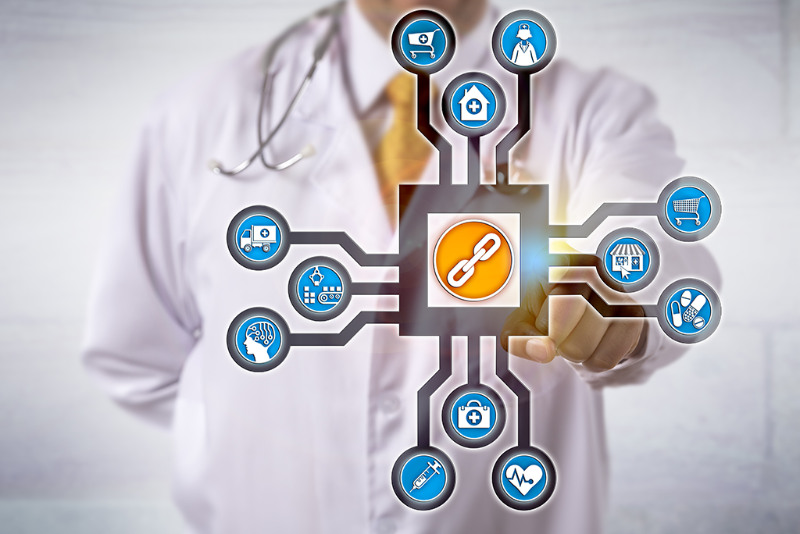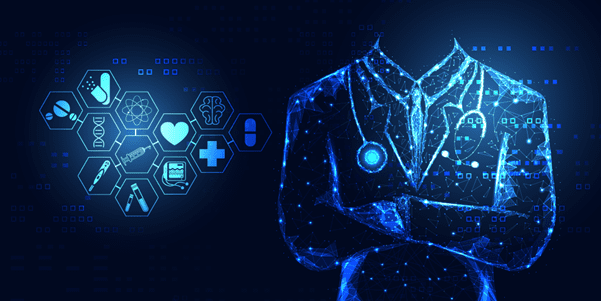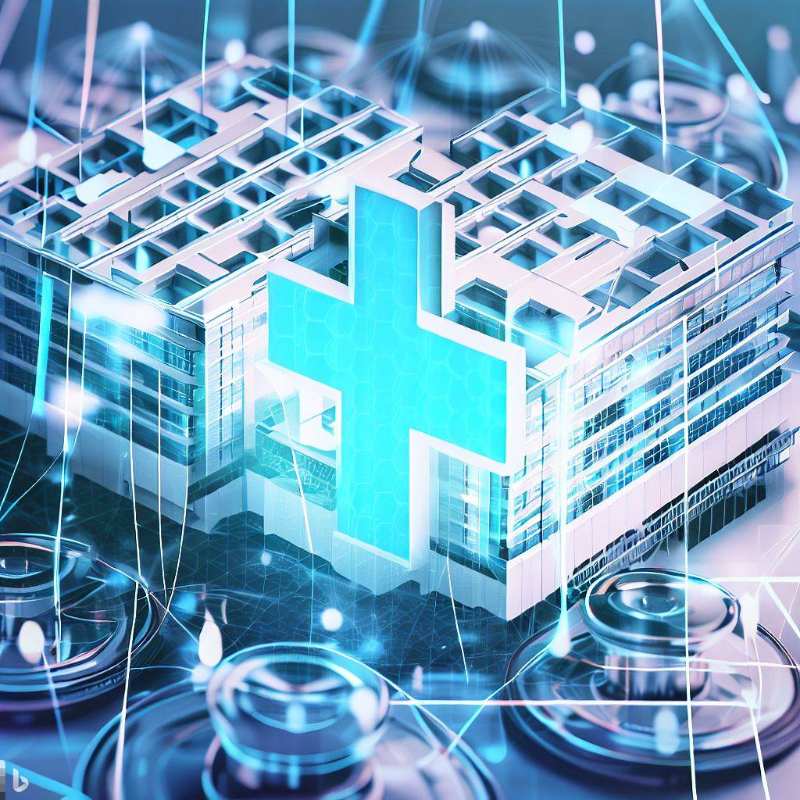Contents
Introduction
The healthcare industry encompasses a vast and complex network of organizations, professionals, technologies, and services dedicated to the maintenance, improvement, and restoration of human health. It plays a critical role in society by providing medical care, preventive services, research, and advancements in medical science. The healthcare industry is dynamic and ever-evolving, driven by technological advancements, medical discoveries, changing demographics, and societal needs. It's a critical sector that affects every individual's well-being and quality of life.

Challenges faced by the Healthcare Industry
The healthcare industry faces numerous challenges that impact its operations, patient care, and overall effectiveness. Some key challenges include:
Interoperability: The lack of standardized communication protocols and data formats makes it difficult for different healthcare systems to share and exchange patient information seamlessly.
Fragmented Data: Patient data is often scattered across different healthcare providers, systems, and formats, leading to inefficiencies, medical errors, and incomplete patient profiles.
Data Security and Privacy: Protecting sensitive patient information from breaches and unauthorized access is a constant struggle due to the increasing digitization of healthcare data.
Regulatory Compliance: Healthcare is subject to complex and evolving regulations (e.g., HIPAA) that require strict adherence to ensure patient privacy, data protection, and ethical treatment.
Rising Costs: Healthcare costs continue to escalate, burdening both patients and healthcare systems, and making access to quality care challenging for many individuals.
Ageing Population: The aging population puts pressure on healthcare systems to provide specialized care for chronic illnesses and age-related conditions.
Health Disparities: Socioeconomic and geographic disparities in access to healthcare result in unequal health outcomes for different segments of the population.

Healthcare IT Infrastructure: Many healthcare systems struggle to modernize their IT infrastructure, hindering the adoption of digital tools and innovative technologies.
Workforce Shortages: There's a shortage of healthcare professionals, including doctors, nurses, and specialized medical staff, in many regions.
Medical Errors: Errors in diagnosis, treatment, and medication administration can lead to patient harm and even fatalities, impacting patient safety and trust.
Inefficient Administrative Processes: Cumbersome administrative tasks, paperwork, and billing processes contribute to inefficiencies and take time away from patient care.
Inadequate Access to Care: Rural and underserved areas often lack access to quality healthcare services, exacerbating health disparities.
Drug Pricing and Access: High drug prices and limited access to essential medications are significant concerns for patients and healthcare systems.
Technological Integration: Integrating new technologies like electronic health records (EHRs), telemedicine, and AI into existing healthcare systems can be challenging and disrupt workflow.
Public Health Crises: Events like pandemics or disease outbreaks can overwhelm healthcare systems and highlight vulnerabilities in emergency preparedness.
Ethical Dilemmas: Healthcare professionals often face ethical dilemmas related to end-of-life care, resource allocation, and patient autonomy.
Patient Engagement: Encouraging patients to actively manage their health, comply with treatment plans, and engage in preventive care can be a struggle.
Addressing these challenges requires collaboration between healthcare stakeholders, regulatory bodies, technology experts, and policymakers to ensure a more efficient, accessible, and patient-centered healthcare system.
Capabilities of Blockchain Technology for Healthcare Domain

Blockchain technology has the potential to revolutionize various aspects of the healthcare industry by providing secure, transparent, and efficient solutions. Some of the notable uses of blockchain in healthcare include:
Interoperability and Data Exchange: Blockchain facilitates seamless sharing of patient data among different healthcare providers and systems, improving care coordination.
- Secure Patient Data Management: Blockchain ensures the secure and tamper-proof storage of patient medical records, protecting sensitive information from data breaches.
Consent Management: Patients can manage and control who has access to their medical data through smart contracts, enhancing privacy and patient autonomy.
Clinical Trial Transparency: Blockchain enhances transparency and data integrity in clinical trials by recording trial data securely and immutably.
Drug Supply Chain Integrity: Blockchain tracks the movement of pharmaceuticals across the supply chain, preventing counterfeit drugs and ensuring authenticity.
Health Data Security: Blockchain's encryption and consensus mechanisms enhance the security of health data, reducing the risk of unauthorized access.
Telemedicine and Remote Monitoring: Blockchain enables secure sharing of telemedicine data and remote patient monitoring, ensuring data accuracy and privacy.
Decentralized Identity: Blockchain provides a secure platform for managing patient identities, reducing the risk of medical identity theft.
Healthcare Payments and Claims: Blockchain streamlines billing and claims processing, reducing administrative costs and fraud in healthcare transactions.
Medical Research Collaboration: Researchers can securely share and access data for medical studies, fostering collaboration while maintaining data integrity.
Public Health Surveillance: Blockchain enhances real-time data sharing for disease tracking, enabling quicker response to outbreaks.
Supply Chain Management for Medical Devices: Blockchain tracks the lifecycle of medical devices, ensuring quality and authenticity.
Continuing Medical Education (CME): Blockchain records and verifies medical professionals' continuing education credits and certifications.
Organ Transplant Tracking: Blockchain improves transparency and accountability in organ transplant processes, ensuring ethical allocation.
Streamlined Insurance Processes: Blockchain automates insurance claims and verification processes, reducing administrative burdens.
Data Monetization and Consent: Patients can grant permission to share their data for research purposes, potentially incentivizing participation.
Patient-Generated Data: Blockchain securely captures and stores patient-generated health data from wearables and IoT devices.
Smart Contracts for Healthcare Agreements: Blockchain's smart contracts automate and enforce healthcare agreements, reducing disputes.
Emergency Medical Data Access: Blockchain allows secure and immediate access to critical patient information during emergencies.
Global Health Data Exchange: Blockchain enables secure cross-border sharing of health data for traveling patients.
These applications of blockchain in healthcare demonstrate its potential to improve security, transparency, efficiency, and patient outcomes across various aspects of the industry.
Let us see in detail how blockchain technology can tackle the Interoperability and Data Fragmentation challenges.
Interoperability
Healthcare interoperability pertains to the capacity of distinct healthcare systems, technologies, and providers to exchange, access, and utilize patient data cohesively. It guarantees that medical records, tests, and treatments can be accurately shared across various platforms, facilitating efficient communication and collaboration among healthcare entities to enhance patient care coordination and results.

The deficiency of uniform communication protocols and data formats complicates the seamless sharing of patient data across different healthcare systems.
Blockchain tackles the interoperability hurdle in healthcare by constructing a decentralized, tamper-resistant, and standardized data exchange platform. It establishes a shared ledger where healthcare entities securely and transparently exchange patient data, medical records, and treatment plans. The Hierarchical Token Data model can be implemented to fine-tune access control, and Tokenize offers a user-friendly solution. Smart contracts automate data-sharing agreements, guaranteeing consistent and secure information flow across varied systems. Patients manage data access via cryptographic keys, heightening privacy. Through consensus mechanisms that establish a singular source of truth, blockchain curtails data disparities and bolsters data precision. This unified platform and standardized protocols foster smooth communication among diverse healthcare systems, promoting superior care coordination, diminished medical errors, and ameliorated patient outcomes.
Data Fragmentation
Data fragmentation within healthcare pertains to the dispersion of patient data across diverse systems, providers, and departments, resulting in disjointed and incomplete medical records. This undermines effective patient care coordination and decision-making, often making critical information inaccessible or duplicated, leading to inefficiencies and potential medical mistakes.

Blockchain confronts the challenge of data fragmentation in the healthcare sector by presenting a secure and decentralized framework for unified data storage and sharing. Tokenize offers a user-friendly solution. It establishes an immutable ledger where patient records from various origins can be securely stored, and access is managed through cryptographic keys and smart contracts. This empowers healthcare providers with access to comprehensive and current patient histories, streamlining care coordination. Furthermore, patients themselves control data access, thereby enhancing privacy and ensuring comprehensive information exchange.
Blockchain's consensus mechanisms create a singular truth source, minimizing data disparities between systems. Through standardized protocols, data formatting, and automated data-sharing agreements, blockchain advances interoperability, enabling diverse systems to communicate effectively. This technology diminishes data duplication and errors, simplifies administrative processes, and heightens the overall quality of patient care by offering a holistic perspective of patient health information throughout the healthcare landscape.
Conclusion
The intrinsic encryption and decentralization of blockchain lead to innovative applications in healthcare. This technology heightens the security of patients' electronic medical records, facilitates the monetization of health information, advances interoperability among healthcare institutions, and combats counterfeit medicines. Blockchain's transformative potential extends to various healthcare domains, including digital contracts enabled by smart contracts, particularly crucial in healthcare. Intelligent contracts streamline payment processes by eliminating intermediaries, thereby reducing costs.

However, while blockchain holds promising solutions, its adoption in healthcare is accompanied by challenges. These include regulatory considerations, integration with existing systems, scalability limitations, and the necessity for industry-wide standards. As the technology matures, its potential impact on healthcare stands poised to grow more substantial.
For more information and other Enterprise use cases, contact Chainize.


